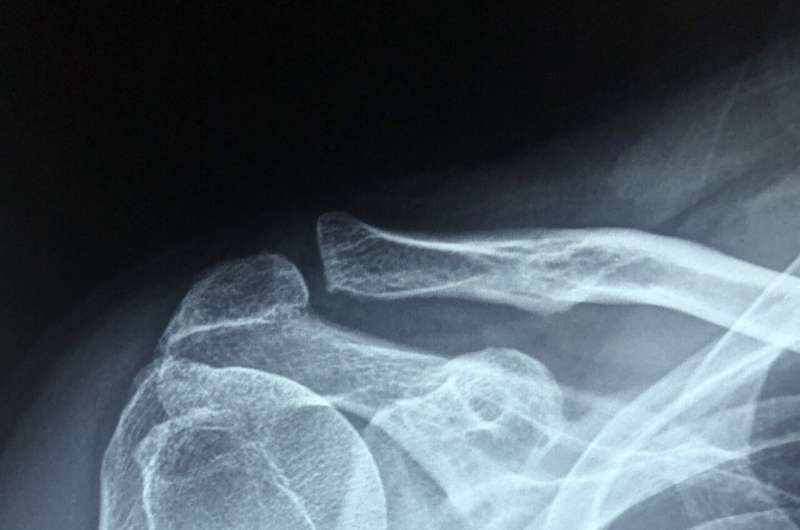This article has been reviewed according to Science X's editorial process and policies. Editors have highlighted the following attributes while ensuring the content's credibility:
fact-checked
trusted source
proofread
Readmissions more likely for wheelchair users after shoulder replacement

Wheelchair users are nearly three times more likely to experience hospital readmission following total shoulder arthroplasty (TSA), according to UT Southwestern Medical Center researchers. The findings, published in the Journal of Clinical Medicine, highlight the importance of comprehensive preoperative counseling and risk assessment for patients who use wheelchairs.
"The implications of this research are far-reaching, as it directly impacts a growing population of individuals who rely on wheelchairs for mobility," said lead researcher Yen-Sheng Lin, Ph.D., Assistant Professor of Orthopaedic Surgery and Physical Medicine & Rehabilitation.
In addition to revealing higher rates of readmission, Dr. Lin and his team found significant differences in the rates of preoperative comorbidities and postoperative complications that can contribute to readmission.
Researchers reviewed a national database to identify patients diagnosed with a rotator cuff tear who underwent total shoulder replacement, or TSA, between 2010 and 2020. They identified patients who were prescribed a wheelchair and created two cohorts of 869 patients each: wheelchair users and non-wheelchair users.
The study found that common comorbidities were more prevalent in wheelchair users and placed them at greater risk of complications and readmission. Among the preoperative comorbidities, wheelchair users had nearly three times the rate of anemia and ischemic heart disease, and twice the rate of pulmonary heart disease, myocardial infarction, chronic kidney disease, rheumatoid arthritis, and previous arrhythmias.
Postoperative findings also were disparate between the cohorts. While dislocation and infection are the leading causes of readmission for non-wheelchair users, Dr. Lin and his colleagues found that urinary tract infections, acute kidney injury, and wound disruptions were the leading causes of readmission for wheelchair users. Also, this group was nearly four times more likely to have acute kidney injury, more than three times more likely to develop pneumonia, and nearly three times more likely to have a urinary tract infection.
By identifying and addressing the unique challenges wheelchair users face following TSA, health care providers can work toward improving patient outcomes and enhancing quality of life.
"Our research findings have illuminated critical disparities in surgical outcomes for wheelchair users undergoing total shoulder arthroplasty," Dr. Lin said. "These insights emphasize the need for tailored preoperative assessments, specialized postoperative care, and informed decision-making discussions for this patient population."
The findings build on Dr. Lin's ongoing research to better understand secondary complications among individuals with disabilities and to develop novel diagnostic tools for early detection of debilitating processes, reducing the negative impacts of neurological and musculoskeletal disorders.
More information: Kevin Prabhu et al, Perioperative Outcomes, Comorbidities, and Complications following Total Shoulder Arthroplasty in Wheelchair Users: A Retrospective Cohort Analysis of a Nationwide Database, Journal of Clinical Medicine (2023). DOI: 10.3390/jcm12185799




















